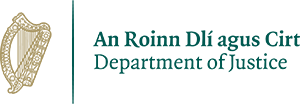If you are a non-EEA national coming to study in Ireland you must be enrolled in a full-time course or programme on the Interim List of Eligible Programmes (ILEP).
In order to be granted student permission in Ireland, you must enrol on a full-time day time programme. Part-time or distance learning courses do not qualify for student permission.
Check the ILEP to find out if the programme is listed. Student permission will only be granted if you have enrolled on and started a programme listed on the ILEP.
The ILEP includes the following types of programmes or courses:
- English language programmes
- Higher education programmes
- Professional awards
- Foundation programmes
Students are advised to research the provider and programme before enrolling. The ILEP does not guarantee the quality of the provider, however, providers listed on the ILEP must meet certain criteria and standards. Providers must have learner protection for enrolled non-EEA students and cannot accept fees in cash. Before making any purchase, students should assess what is on offer, the reputation of the institution and its facilities and be aware the lowest price may not necessarily be the best deal. A provider must list all costs in advance, including exam fees.
If you come to Ireland to study a degree, you will be granted an immigration permission for a specific programme offered at an approved higher education provider. Only in very exceptional circumstances will you be allowed to change programme during the first year of your studies.
You must provide an academic report from the provider, including detailed exam results. You will also have to provide an enrolment letter for the new degree programme you wish to undertake that outlines why the new provider believes you are suitable to enrol in this course, taking into consideration you have not completed your original programme.
Students may not transfer from a degree to a language programme. Students may not change from a Masters programme to a degree course.
If you have been unable to sit exams because of circumstances beyond your control, such as accident or illness supported by medical evidence, you may be able to extend your permission for four months to allow you to take the exams.
If you can demonstrate that your exams results were sufficiently close to the pass mark or you passed most of your other modules we will also consider your case.
We won’t extend permission to retake a full year’s tuition.
If you are studying a programme that is removed from the ILEP, you will be allowed to complete it as long as you comply with the conditions of your immigration permission.
Students from some countries need a valid visa to come to Ireland. Find out if you need a visa.
A student on a full-time English language course listed on the ILEP may be granted an immigration permission of up to 8 months.
A student may be granted immigration permission for a maximum of three English language programmes of 8 months duration each. The total duration of immigration permission for a new student attending English language programmes is two years (i.e. three x 8 months). You will need to provide your end-of-programme exam results and meet attendance requirements in order to renew your permission each time. If you wish to stay on as a student after that time you must enrol on a higher education programme listed on the ILEP.
- Refunding fees and charges
- Monitoring class attendance and punctuality
- Dealing with absenteeism and expulsion
- Student sick leave
- Student holidays and breaks
- Registering students for end of programme exams
- Student assessments and exams
All colleges must provide learner protection for students. This protects you if your programme ceases prematurely. This could mean you complete the programme with another provider, or you are given a refund of a portion of your fees. Your letter of acceptance from the provider must clearly state that you are covered by learner protection arrangements. If the learner protection arrangements are through an insurance scheme, the provider must give you a certificate of proof in your name demonstrating that you are covered. This certificate shows you what to do if you need to make a claim.
Providers must also publish the names of the recruitment agents they deal with. Before making a decision, you should assess what is on offer, the reputation of the institution and its facilities. The lowest price may not be the best deal. A provider must list all costs in advance, including exam fees and cannot accept fees in cash. You should research the provider and programme before enrolling or transferring any money to a provider or an agent.
The college must have all of its course timetables available on the college website and timetables will include holiday arrangements. Providers must publish the holidays policy on the website.
You cannot take holidays before starting your programme and holidays cannot exceed one third of the total weeks you have studied. When you enrol in a programme, the college will give you a written timetable that outlines your holiday arrangements. You must show this to the Immigration Officer when registering your immigration permission.
No, colleges cannot ask for cash payment. You must pay programme fees through an approved money transfer facility or by electronic bank transfer.
All providers must publish their refund policy on their website. You should check the refund policy before you enrol on a programme. The refund policy must set out the maximum time it will take to receive a refund, which cannot be longer than two months. Any administrative charges or portion of fees retained by the provider must be advised to you before you pay or enrol. The policy must list conditions where you may not be eligible for a refund.
If your visa application is refused or you are refused entry into Ireland, your refund request must be processed within 20 working days. The refund policy will describe how to request a refund.
No, you must enrol on a full time programme listed on the ILEP.
Yes, you can work up to 20 hours per week during term time. During June, July, August and September, and between 15 December and 15 January, you can work up to 40 hours per week.
No, students are typically not permitted to bring family members with them. There are some very exceptional circumstances where this may be permitted.
Yes, all non-EEA students, including those who do not require a visa must register, for the first time, to remain in Ireland for more than 90 days.
If you reside in Dublin, Kildare, Meath, Wicklow, Cork or Limerick, you must make a first time registration appointment in advance to attend the public Registration Office in Burgh Quay, Dublin.
The Garda National Immigration Bureau (GNIB) is responsible for first time registration of people living outside the above counties.
Yes, the registration fee is €300.
You can stay up to seven years as a student. If you have studied before in Ireland it will count towards your total time as a student.
If you are a new student attending English language programmes can get permission for up to two years (i.e. three x 8 months). If you wish to stay on as a student after that time you must enrol on a higher education programme listed on the ILEP.
Yes, you need to show us that you have enough money to pay your programme fees and all other living expenses while you are in Ireland.
If you need a visa to come to Ireland, you will be asked to show proof of your financial resources by the visa authorities. Details of these requirements can be found at the following link: Information on Student Finances
If you don’t need a visa to travel to Ireland, you will be asked to show proof of your financial resources at time of registration. Details of these requirements can be found at the following link: Requirements and documents needed
You could also provide a valid credit or debit card with that amount of money available in the account.
If you are a scholarship student and your college is covering your costs, we will ask for a letter stating that.
If students have any further questions in relation to the cost of living as a student in Ireland, we would encourage them to liaise directly with their college/university who will be able to advise them as appropriate.
Yes all non-EEA students coming to Ireland need to have private medical insurance. When you register your permission you will be asked to show proof of medical insurance. Private Medical Insurance for full-time Non-EEA Students (Size 22KB)
All schools and colleges must provide learner protection. This means providers must have arrangements in place to protect you if the programme ceases prematurely. This could mean you complete the programme/course with another provider, or have a portion of your fees and costs refunded as part of an insurance scheme. Your acceptance letter from the provider must clearly state the type of learner protection arrangements.
If the learner protection arrangements are through an insurance scheme, you must be provided with a policy certificate in your own name proving that you are covered. This certificate must also include contact details for the insurer and details of how to make a claim. The certificate may be emailed to you by the insurer and you should receive it after you pay your fees.
Some providers have academic bond agreements with other providers. This would allow you to complete the programme/course with the other provider in the bond.
If you have an award from a recognised Irish awarding body it may be possible to stay in Ireland to seek employment after you complete your programme.
The Third Level Graduate Programme allows legally resident Irish educated non-EEA graduates who hold a level 8 or level 9 award from a recognised Irish awarding body to remain in Ireland after their studies for a period of twelve months.

